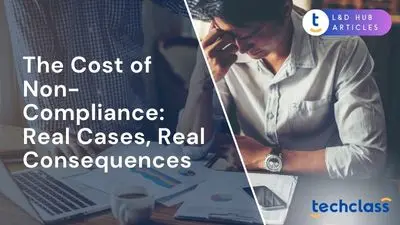The compliance landscape is undergoing a fundamental transformation, and 2025 will be a defining year. What was once considered a back-office chore has now become a boardroom conversation. Compliance is no longer about simply avoiding penalties—it is a critical driver of trust, resilience, and competitive advantage.
So, what are the “new rules of business”? They can be grouped into five key areas, and mastering each one is essential. Falling behind on even a single front could have serious consequences.
Data privacy is becoming increasingly complex. In the U.S., the absence of a single federal privacy law has led to a patchwork of state-level regulations. More than 40% of states have enacted their own laws, and in 2025 alone, eight new ones will take effect.
The risks extend far beyond U.S. borders. Under the EU’s GDPR, Meta was fined €1.2 billion for unlawful data transfers—a clear sign that penalties are steep and global in scale. Businesses must treat data privacy as a priority, not an afterthought.
The cybersecurity paradigm has shifted. It’s no longer about building barriers—it’s about proving resilience when an attack inevitably occurs. Regulators, partners, and customers all expect organizations to demonstrate that their security plans are tested and effective.
The stakes are high: the average data breach costs nearly $5 million. Surprisingly, 95% of breaches involve human error, not technology failures. True resilience requires a comprehensive strategy: continuous risk monitoring, employee training, crisis simulations, and rapid recovery protocols. Cybersecurity is no longer a checklist—it is an ongoing cycle.
The rapid rise of AI has triggered a global push for regulation. The EU’s AI Act and dozens of U.S. bills make clear that the “Wild West” era of AI is ending.
For businesses, this means taking proactive steps:
Ethics must be built into AI systems from the start, not bolted on later.
Environmental, Social, and Governance (ESG) considerations have moved from corporate talking points to core compliance obligations. ESG transparency now ranks as the second-biggest challenge for compliance professionals, right after data breaches.
Regulators, investors, and consumers increasingly demand hard data—audited and transparent—on everything from carbon emissions to labor practices deep within supply chains. Vague promises are no longer enough; measurable accountability is the standard.
The compliance spotlight is also shining brightly on workplace culture. New laws are introducing tangible employer obligations, including:
This shift reflects more than regulation—it mirrors cultural expectations. Nearly two-thirds of companies plan to expand ethics and conduct training, recognizing that fairness and accountability are essential to a healthy workplace.
When viewed together—privacy, cybersecurity, AI, ESG, and workplace rights—the message is clear: being proactive is not just about avoiding risk. It’s about building stronger, more trusted, and more resilient organizations.
The companies that thrive in 2025 will be those that go beyond compliance checkboxes and prepare for tomorrow’s challenges today.
So, the real question is this: Will your organization simply meet today’s requirements, or will it lead with resilience and foresight into the future?


